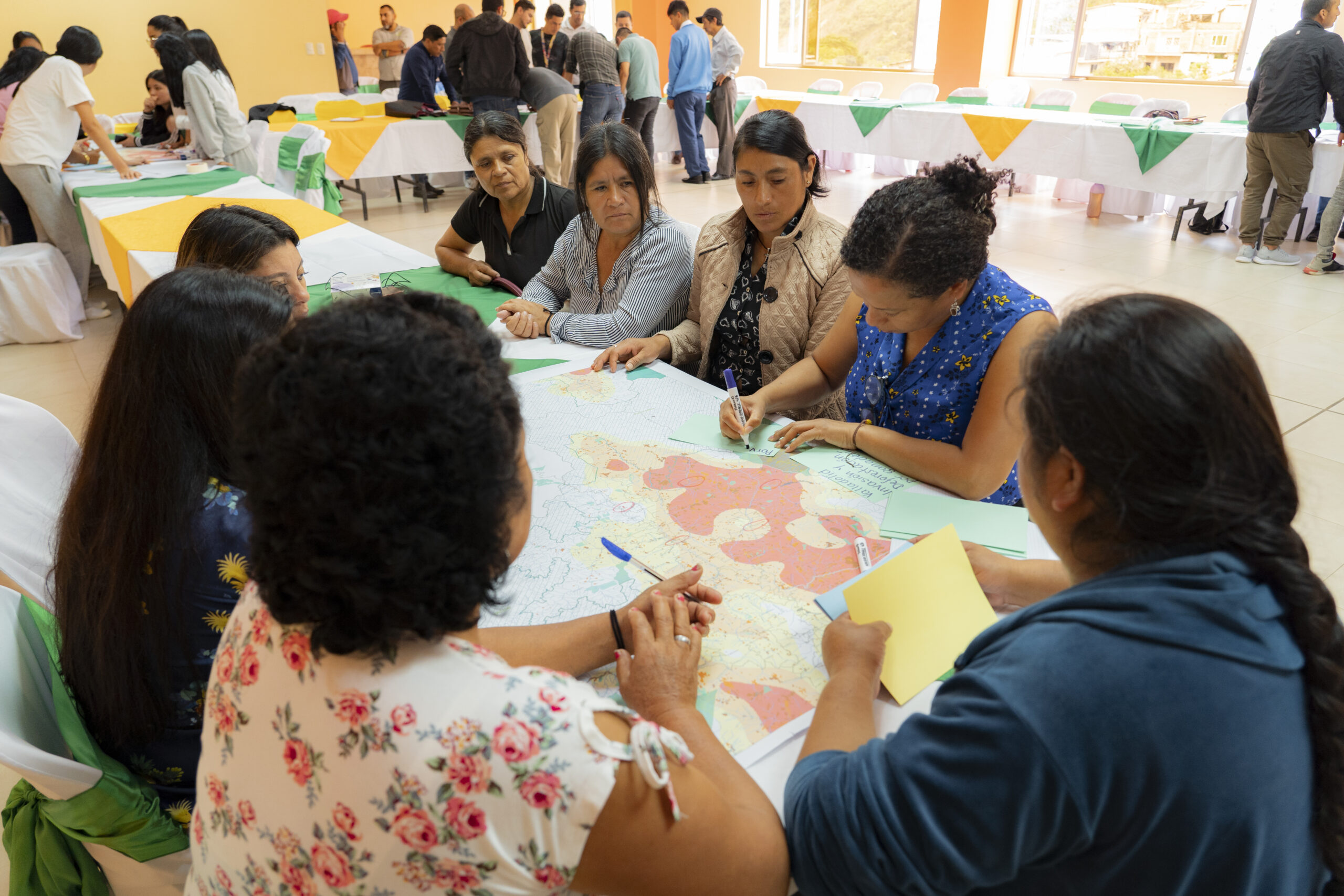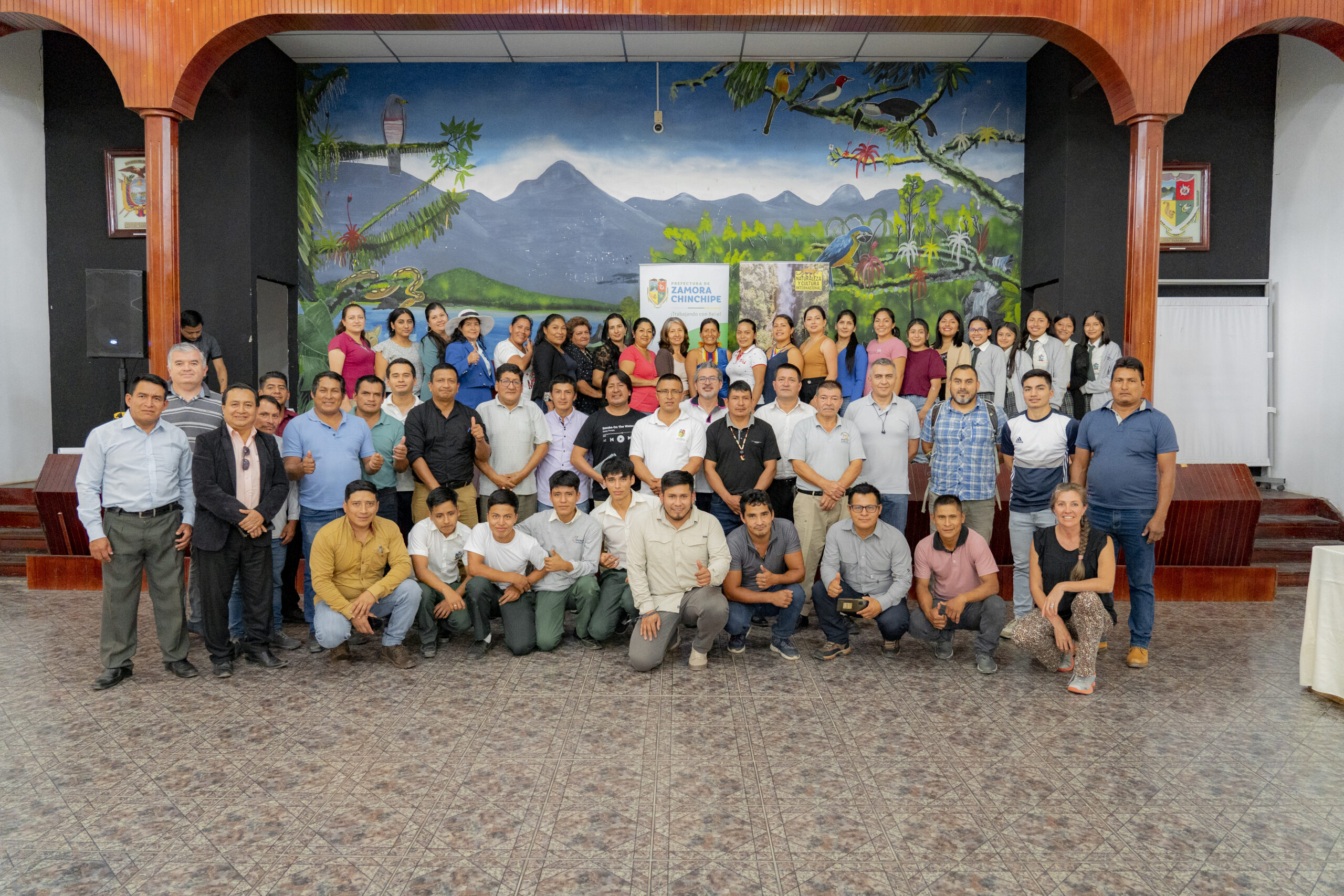The province of Zamora Chinchipe is the second province in Ecuador that has decided to establish planned actions to take care of its forests and commit to the fight against climate change. This province in southern Ecuador is working, participatively, to build an Implementation Plan of Measures and Actions to combat deforestation and forest degradation (PdI REDD+). Its Mayor, Karla Reátegui, has proposed calling it “Plan Sembrando Vida”, or “Sowing Life Plan”.
The PdI REDD+ is an articulating instrument that, based on the identification of actors and their relationship with forests, analyzes and proposes alternatives for sustainable forest management, production, conservation and management within the territory, to design and implement measures and actions based on the different causes and agents of deforestation and forest degradation. That is, these measures and actions require the identification, definition and prioritization of activities that, in an articulated manner, contribute to reducing the causes of deforestation, promoting the conservation and recovery of forests.
The Sowing Life Plan is built as a planning instrument that will be integrated into the Provincial Development and Management Plan. This Plan collects the voices of various actors in the territory who will participate in workshops as part of a process that is oversaw by the Ministry of Environment, Water and Ecological Transition. The Sowing Life Plan is built together with the Municipal and Parish (Parroquiales) Governments in coordination with the Provincial Table for Climate, Forests and Human Welfare, Indigenous Peoples and Nationalities, civil society actors, Universities, groups and associations of producers; with the technical and financial support of Nature and Culture International (Naturaleza y Cultura Internacional), Ecuador.

Group working in the Sowing Life Plan. Photo by: Naturaleza y Cultura Internacional
PARTICIPATORY BUILDING OF THE SOWING LIFE PLAN
The first phase of participatory workshops began on August 29 and ended on September 6 of this year. On the occasion, the objectives of the REDD+ action plan were socialized and information was collected for the identification of deforestation foci, so that a productive socioeconomic diagnosis can be built in the deforested areas of the province.
The participation of the different actors and leaders of the province was crucial in this first participatory space; During the six workshops, more than 360 people had their voices heard. Likewise, the workshops have been developed from a gender and youth approach and vision, to obtain a comprehensive view that identifies information on the reality of Zamora Chinchipe, in the face of the main impacts of deforestation.
Karla Reátegui, mayor of the province, points out that, after identifying the sources of deforestation, measures and actions will be taken to address its causes and will boost policies that promote conservation and sustainable forest management. “That is why the participation of citizens is key, because the definition of timely actions depends on it” Reátegui emphasizes.
Bruno Paladines, coordinator of the Amazon Platform and this project, mentions that this plan is part of the National REDD+ Plan and has the accompaniment of the Undersecretariat of Climate Change, the authority in charge of its implementation at the national level; and, once the plan is finalized and approved by MAATE, resource management will begin to support the province in the implementation of actions to attack the causes or reasons for forest deforestation.
Paladins, points out that the actions focus on four strategic components that are broken down below:
- Institutional Policy and Management for REDD+. Public policy is key to the conservation of the forests of the province of Zamora Chinchipe and that its management is directed from provincial or municipal ordinances and parish resolutions in accordance with national policy is necessary, emphasizes Bruno Paladines.
- Transition to sustainable production systems. Karla Reátegui, mentions that the forests and water sources that remain must be conserved, and assures that it is necessary to look for actions that allow to move towards this new system of sustainable production free of deforestation. That, in turn, walks hand in hand with a production more in line with diversity, with water and forest conservation. For example, says Paladines, the domestication of cocoa represents for this province a transcendental discovery that can allow managing resources that serve as an investment to strengthen all that ancestral knowledge and the productive potential of the entire province from the crops and orchards that are already managed in this place.
- Sustainable Forest Management. One question raised in the participatory workshops was how to manage the remaining forests. Paladins argue that these questions speak of the needs of the people, the inhabitants of these territories need forests to live, but they need to conserve them to guarantee the improvement of their quality of life.
- Conservation and restoration. Conserving the forest we have left is vital, you cannot continue losing forests and do nothing, clarifies Paladines. In this sense, a fundamental component of the PdIREED+ will be the management of the four ACUS Conservation and Sustainable Use Areas, in the province of Zamora Chinchipe, and from there to consider the desired new development model.
These participatory processes will enable the identification of the causes and reasons that have provoke forest loss in the province of Zamora Chinchipe and, on this, to propose actions to recover and conserve them. According to the preliminary report, this Amazon province has high rates of deforestation.
The next step in the construction of the Sowing Life Plan is the validation of the actions and proposals established in the workshops. In addition, a meeting of rural women will be held to learn about the differentiated impacts between men and women in the use of natural resources that cause deforestation of forests.
More information:
Aida Maldonado Quezada, Communications Lead for Ecuador
comunicacion@naturalezaycultura.org
Original post: https://www.natureandculture.org/es/directorio/zamora-chinchipe-construye-el-plan-sembrando-vida/

